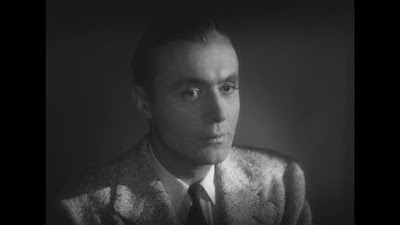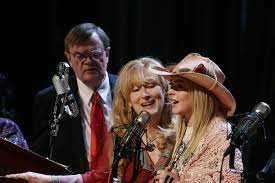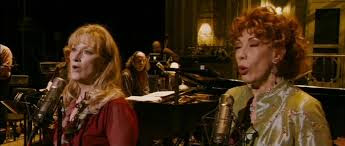 |
| WKW‘s sumptuous In the Mood for Love with the gorgeous Maggie Cheung and debonair Tony Leung (Click on any photo for a slideshow) |
Perhaps there isn’t any need in a world gone mad, where egos reign and ‘f’ is not only for fake, but has come to denote the ‘f’s that triumph over everything else; the ideal inclusiveness of the politically correct has finally evolved to a state where nothing is in fact tolerated. It seems to me that love or reflection requires a kind of quietude that is not of this world; and thus difficult to find.
The oppressive ubiquitousness of the year of 2021 meant (for this moonlighting writer at least) that her finished novel on reflection and love was met with silence, (rather than sterile rejection emails); and even with the stoic pushing-through of manuscript refinement, she could not help but feel abandoned, disheartened and reflectively so; but then quite simply, life goes on.
The only sanctuary sought in this quickening and madding year was to be within the folds of those filmmakers, artists and writers, who, in different epochs and geographies, had the heart to hold a small candle out to love and contemplation. Despite everything, to joyously chase elusiveness, to be bathed in lyrical interludes, to lift not douse, to dream and look at the sky. And in thus reaching, fill this shadowed world with a luminescence, and extend an invitation to our own ghostly selves to fly up to the heavens. Cinema…you have yet again lifted me from a Sisyphean life.
Film Festivals saved my life
 |
| The end sequence of Days of Being Wild is the beginning of something |
It began beautifully in January, with a Wong Kar-wai retrospective: Love & Neon as part of the Sydney Film Festival, which screened in cinemas across Sydney, including the Art Gallery of NSW, where I attended three of his films, and each time, to a full house. It was good to see many newbies to WKW’s cinema show up and then falling in love with his films, as I did, all over again. The many guises of Hong Kong, my childhood home, brought back much reflection of the current state of play of this beloved city, and Wong’s interleaved stories coupled with Christopher Doyle’s cinematographic lightness shone a light on the city and its people. It spoke of the thrill of seeking that certain something, invisible to the eye - the space of friction which opens up between encounters, and the fragile hearts that sparked these flames - filled me with a kind of nostalgic love for my hometown. My somewhat personal essay Love and Distance : The Art of Wong Kar-wai is a hymn to this lost love. But alas, at the end of this festival, I find myself chasing the elusive DVD of the original cut of Wong’s Ashes of Time, I possess a VHS copy of said film, but not a VHS player. I can’t imagine new generations of WKW fans only being able to watch the Redux version of the film. There is a cinephile who has done a shot-by-shot comparison of the two versions, but for me, there is only ever one version. As luck would have it, for those new to WKW’s cinema, SBS on demand has Days of Being Wild as part of its streaming selection. I managed to always find time, just 3 mins is all, to rewatch the last segment of this film to ease me into a state of nostalgia - and it never fails.
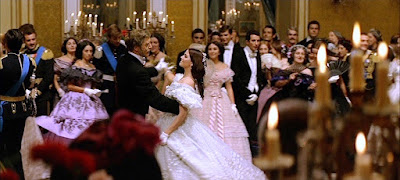 |
| The Leopard - glorious, enchanting. Burt Lancaster as the Prince of Salina, here dancing with the radiant Claudia Cardinale |
The return of the French Film Festival, Italian Film Festival, as well as the Sydney Film Festival brought much joy (and relief, if truth be told). As did the Cinema Reborn’s festival season, which showed (amongst its ten carefully curated films) a newly and gloriously restored print of Visconti’s masterwork The Leopard. You can find the Cinema Reborn catalogue here. This is my fourth time viewing the film and second time on the big screen after a gap of some fifteen years or more. I would argue that it doesn’t matter if you have the best high quality 4K TV around; some films are cinematic and demands to be watched in the theatre: with its larger-than-life vision that submerges you in its golden light. And for that attraction alone, it is worth donning a mask and risk sitting in a unsocially distanced way. The tonal palette and the travelling eye in the opening shot - a family in prayer, sheltered in a stately house half veiled by the billowing curtains is meant to be projected in a darkened cinema. It to me speaks of Plato’s cave and this image gives me pause to think that the lives we live are in fact on a projection screen, rather than the puppetry in front of this walled universe. I don’t need to repeat the famous line oft quoted from this film to realise its significance today…it’s a shame that this illusion only lasted 3 hours and 25 mins.
 |
| July Tales - Hanne Mathisen Haga in the segment Hanne et la Fête Nationale |
My home film festival continued to hold a fascination for N and I, we have watched a total of 194 films this year, 16 films less than last year (see Diary photo at foot!). With thanks to the curators over at Mubi, we were able to immerse ourselves in directors we have not seen before, such as Guillaume Brac, whose works July Tales (2017) and A World Without Women (2011) bore more than a trace of Rohmer, whose work I dearly love. Brac’s films has this very loose way of story-telling, weaving relationships between men and women in a lilting manner, at once coquettish and wryly funny.
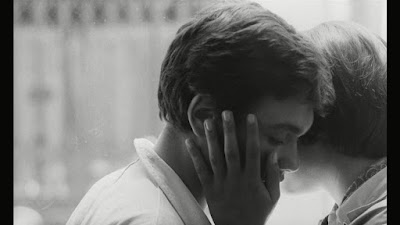 |
| The wonderful Patrick Jouane in the seldom seen Guy Gilles film Wall Engravings |
Another French director, Guy Gilles held our minds captive. The manner in which relationships have an intellectual heart as well as a poetic one continue to hold sway in that very French way: a fascination that oscillates between sensuality and memory. I have not come across his films until last year, and for such a prolific director, I wonder why it is so difficult to find his films (I can’t find any on DVD with English subtitles). So it’s a nice treat for us that Mubi is currently showing three of his early films; Love at Sea(1964), Wall Engravings(1968) and Earth Light (1970).
 |
| Constance Rousseau is remarkable in Mia Hansen-Løve’s debut All is Forgiven |
There are quite a number of films I saw that were outstanding last year, especially Mia Hansen-Løve’s debut All is Forgiven(2007), where her absorbing story ebbs and breaths through characters that wound in and out of timelines and each other’s lives. You’re invested in the characters from the first frame; Constance Rousseauis lovely and fresh in this film, her eyes have this way of quivering that mesmerises you. I loved seeing her flourish in later films: Kiyoshi Kurosawa’s Daguerrotype(2016), and Brac’s A World Without Women(2011).
Other films like Albert Serra’s The Death of Louis XIV (2016) held me entranced the whole way through. I must admit that I didn’t take to Honour of the Knights (2006) when it first came out; but have since had a change of heart, mainly after watching his reworking of Casanova in Story of My Life(2013). This film made me think of Ferrara’s The Addiction(1995), a film that I still hold in high regard. I remember giving a reading of the film through the lens of Bataille at the University of Sydney many years ago when the film first came out, and how I was shocked to see that the film shocked many first year film students (who obviously have not seen Ferrara’s work nor heard of Bataille before).
 |
| Abel Ferrara‘s The Addiction. A great role for Lili Taylor |
Perhaps one of the most poetic and beautiful films I had the good fortune to see last year was Il Futuro| The Future (2013) by Chilean filmmaker, Alicia Scherson, currently showing on Mubi. Manuela Martelli and Rutger Hauer (below) are wonderfully paired, they have a magnetic on-screen chemistry. There is something raw yet promising, beautiful yet harrowing in this film. It speaks to love and loneliness, longing and godlessness so alluringly that you forget yourself when you’re watching this film. It’s a rather loose adaptation of Roberto Bolaño’s Little Lumpen Novella (I think it’s more of a distant wave rather than an reworking), but it’s not necessary to know this nor to have read the book to fall for this film.
 |
| Il Futuro - Love and contemplation - the things of life |
Are there such things as ‘new films’ anymore?
Continuing this column from my 2020 ‘defending cinephilia’ piece partly because I’m a dedicated list maker. However, having said that, I tend to avoid providing a top 10 list films for the year. Why? Well, films are personal and intimate experiences. Whilst it is always fun to contemplate the year-end lists that come out, and I used to follow Film Comment’s list religiously (but feel the publication has lost its spark somewhat after the departure of Gavin Smith, but that’s beside the point), the fact is, I truly believe it’s impossible to form a filmic canon; or perhaps I just prefer a kind of sprawling wilderness.
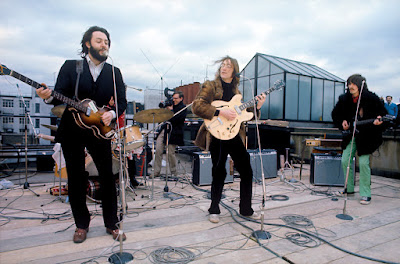 |
| The music, the clothes, the hair, the Abbey Road sessions -fly on the wall documentary |
So, here’s a short list of new films which spoke to me. These films all came out either in 2020 or 2021 and I viewed them either in the cinema, or streamed or on DVD last year. They are listed in no particular order:
Malmkrog(2020), Romania, dir Cristi Puiu
The Beatles: Get Back(2021), United Kingdom, dir Peter Jackson
The Hand of God (2021), Italy, and United States, dir Paolo Sorrentino
Je Suis Karl (2021), Germany and Czech Republic, dir Christian Schwochow
Hidden(2020), France and Iran, dir Jafar Panahi
Love Affairs(2020), France, dir Emmanuel Mouret
Sigmund Freud, A Jew Without God(2020), France, dir David Teboul
And Tomorrow the Entire World(2020), Germany and France, dir Julia von Heinz
Small screen’s a charm
This year, once again, a single series stood out amongst all others, the German/Danish production Beneath the Surface| Tod von Freunden (2021) took my breath away. It’s not my usual crime drama, or the ‘mystery’ of a missing person dressed up as a family drama. Instead, in a casual glance, you may regard the character-cum-titular-episodes to be standard fare. But its Rashomon-like narratives, with each episode unfolding from that person’s point of view but brings you further into the present each time, is beautifully rendered; heartbreakingly so too. This series sings with artistry, and leaves you longing for young love, adventures, the bond of friendship, despite the deceit of past loves and lives. It’s currently showing on SBS on Demand.
 |
| Zzzzzzzz The Sleepers cells |
If you’re looking for something not American, here are some other television series to glue yourself to:
The Investigation(2020) Danish, Swedish - based on real events, good strong crime drama and with one of my fave actors, Søren Malling.
Love & Anarchy (2020) Swedish - venturing outside my usual crime drama into comedy, light and delightful, a look inside a publishing house with Ida Engvoll (she was great in The Team).
The Promise(2020) French - brooding 6 episode detective drama, with Olivier Marchal from The Crimson Rivers.
Call My Agent!(2015-2020) France - all star cast, hilarious and brilliant.
The Sleepers(2019) Czech Republic - 4 part spy drama worthy of the best in that genre.
When the Dust Settles(2020) Denmark - be warned…this is brilliant, raw, sad and beautiful.
Standing up to the test of time - Nostalgia of the films we know by heart
How does one survive in a climate that is so often unpredictable and overstimulated, duplicitous and hostile: a gradual build-up and finally an acceptance of slow dread that has presided throughout the 24 month long year - where one day rolls into the next, and working from home was no longer a gimmick but a constant state of being in front of the screen.
The screen of choice that transforms me from a work automaton to one with a beating heart is but five or six steps away from each other. And the resuscitation required is sometimes of the familiar rather than the new.
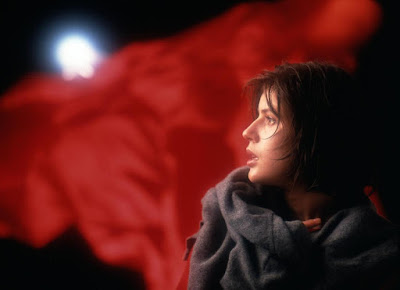 |
| Are there coincidences in life or is love our only destiny? Irene Jacob, Three Colours Red |
It’s hard to define the kind of joy or elation when one is rewatching films. Sharing a small selection of what I’ve rewatched last year: L'avventura(1960), Last Year at Marienbad(1961), Three Colours Red (1994),Wings of Desire(1987), 400 Blows(1959), Fallen Angels(1995), Grand Illusion (1937), A Room With a View(1985), Heartbeat Detector (2007).
What is this thing called…?
Ah, love. “The Love that moves the sun and other stars.” I have but found hidden within the folds of light: a universe of enduring, fickle, passionate desires worthy of the gods. Thank you, cinema. You have saved me, again, for another year.


